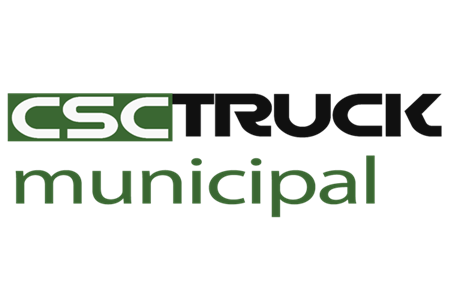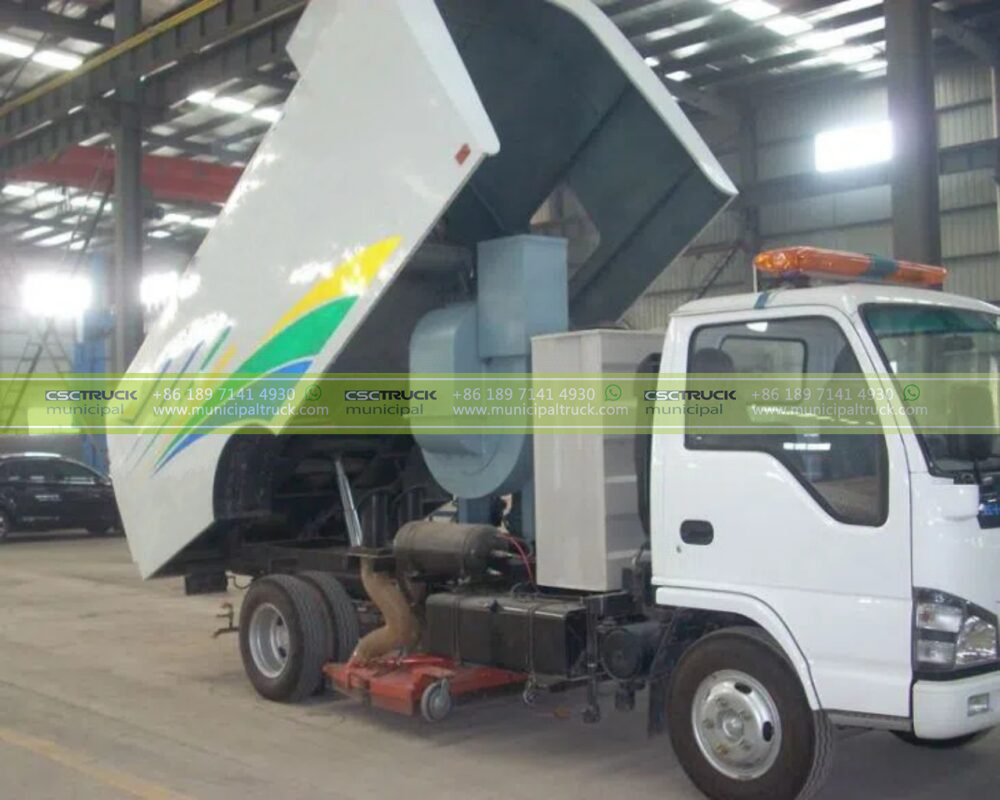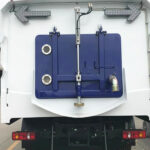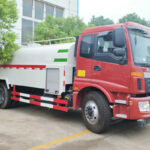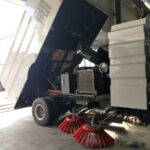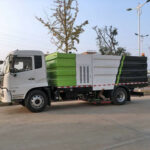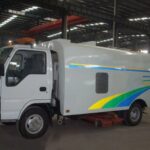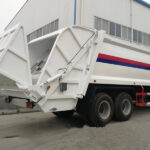In a landmark initiative to combat Central America’s most severe airborne particulate crisis, the Ministry of Environment and Natural Resources (MARN) today commissioned eight cutting-edge waterless sweeper trucks across San Salvador’s metropolitan grid. This $2.3 million deployment—executed through a strategic alliance between CSCTRUCK Municipal Branch and Salvadoran infrastructure leader Grupo Roble—introduces emission-free street cleaning technology designed to slash PM2.5 concentrations by 30% in high-traffic corridors, addressing a critical public health emergency linked to respiratory disease mortality rates 47% above WHO guidelines.
San Salvador’s PM2.5 Emergency and the Waterless Imperative
Chronic industrial emissions, volcanic ash, and trafficked road dust have converged into a persistent airborne toxicity threatening the capital’s 2.4 million residents.
- Health Epidemic Driven by Micro-Particles: MARN’s 2024 Air Quality Index confirmed PM2.5 (particles ≤2.5 microns) exceeded safe thresholds 287 days annually, penetrating deep into lung tissue and bloodstreams. Hospitalizations for childhood asthma and chronic bronchitis surged 18% year-on-year, while economic losses from worker absenteeism reached $190 million. Traditional broom sweepers and water-assisted trucks exacerbated the issue by aerosolizing finer particles during operation.
- Ecological and Operational Constraints: Severe drought conditions—with 40% below-average rainfall since 2023—rendered conventional water-spray sweepers ecologically untenable, consuming 3,000 liters daily per vehicle. Simultaneously, narrow colonial-era streets and steep topographic gradients limited access for bulkier cleaning systems, demanding agile, zero-discharge alternatives.
Engineering Innovation – The Waterless Sweeper Truck Ecosystem
CSCTRUCK’s custom-engineered sweeper trucks deploy a multi-stage filtration architecture eliminating water dependency while capturing sub-micron pollutants.
- Electrostatic Precipitation and HEPA Filtration:
High-efficiency particulate air (HEPA) filters backed by ionized collection plates capture 99.97% of particles down to 0.3 microns, including brake dust and diesel soot. The electrostatic system charges incoming particles, magnetically diverting them into sealed containment chambers—a process consuming 60% less energy than hydraulic alternatives. - AI-Optimized Cleaning Paths:
Machine learning algorithms process real-time PM2.5 sensor data from 120 city nodes, dynamically adjusting sweeping routes toward pollution hotspots. Onboard LiDAR detects road debris density, autonomously modulating brush pressure and suction velocity to prevent particle resuspension during operation across variable surfaces from asphalt to cobblestone. - Self-Sustaining Operation:
Roof-mounted thin-film solar panels generate 35% of operational energy, while regenerative braking systems recover kinetic energy during descents through San Salvador’s mountainous terrain. Noise levels capped at 68 dB allow nighttime deployment in residential zones, maximizing daytime traffic flow continuity.
Strategic Implementation – Partnership-Driven Deployment Framework
The operational success hinges on a vertically integrated service model blending global technology with localized maintenance.
- CSCTRUCK-Grupo Roble Alliance:
Under a 5-year performance-based contract, CSCTRUCK Municipal Branch provides the patented sweeping systems and technician certification, while Grupo Roble established maintenance depots at its Metrocentro logistics hubs. Real-time fleet diagnostics transmit operational data to both MARN regulators and CSCTRUCK’s regional support center in Panama, ensuring 98% technical availability through predictive part replacement protocols. - Impact-Oriented Service Zoning:
Initial deployment prioritizes three critical corridors: the industrial belt of Soyapango (PM2.5 avg: 58 µg/m³), the congested Alameda Roosevelt transit artery, and the historic downtown where UNESCO heritage buildings suffer accelerated facade erosion from particulate abrasion. Phase 2 (Q1 2026) expands coverage to 15 satellite municipalities through a hub-and-spoke servicing model.
Part 4: Integrated Fleet Strategy for Comprehensive Pollution Control
The waterless sweepers anchor a synchronized municipal response combining specialized assets for cumulative air quality gains.
Alongside the PM2.5-targeting sweeper trucks, San Salvador’s enhanced fleet coordinates complementary functions: Vacuum trucks with cyclone separators remove construction slurry and post-storm sediment before sun-drying transforms them into airborne dust, while traditional sweeper units retrofitted with CSCTRUCK’s filtration modules handle low-risk peripheral zones. This tiered mechanized approach consolidates previously fragmented street-level pollution interventions, projecting a 650-ton annual reduction in respirable particulate matter across the metropolitan basin.
This technological inflection point positions El Salvador as Latin America’s pioneer in waterless urban cleaning, transforming street maintenance from a visibility exercise into a scientifically calibrated weapon against airborne disease vectors through precision engineering and transnational technical cooperation.
